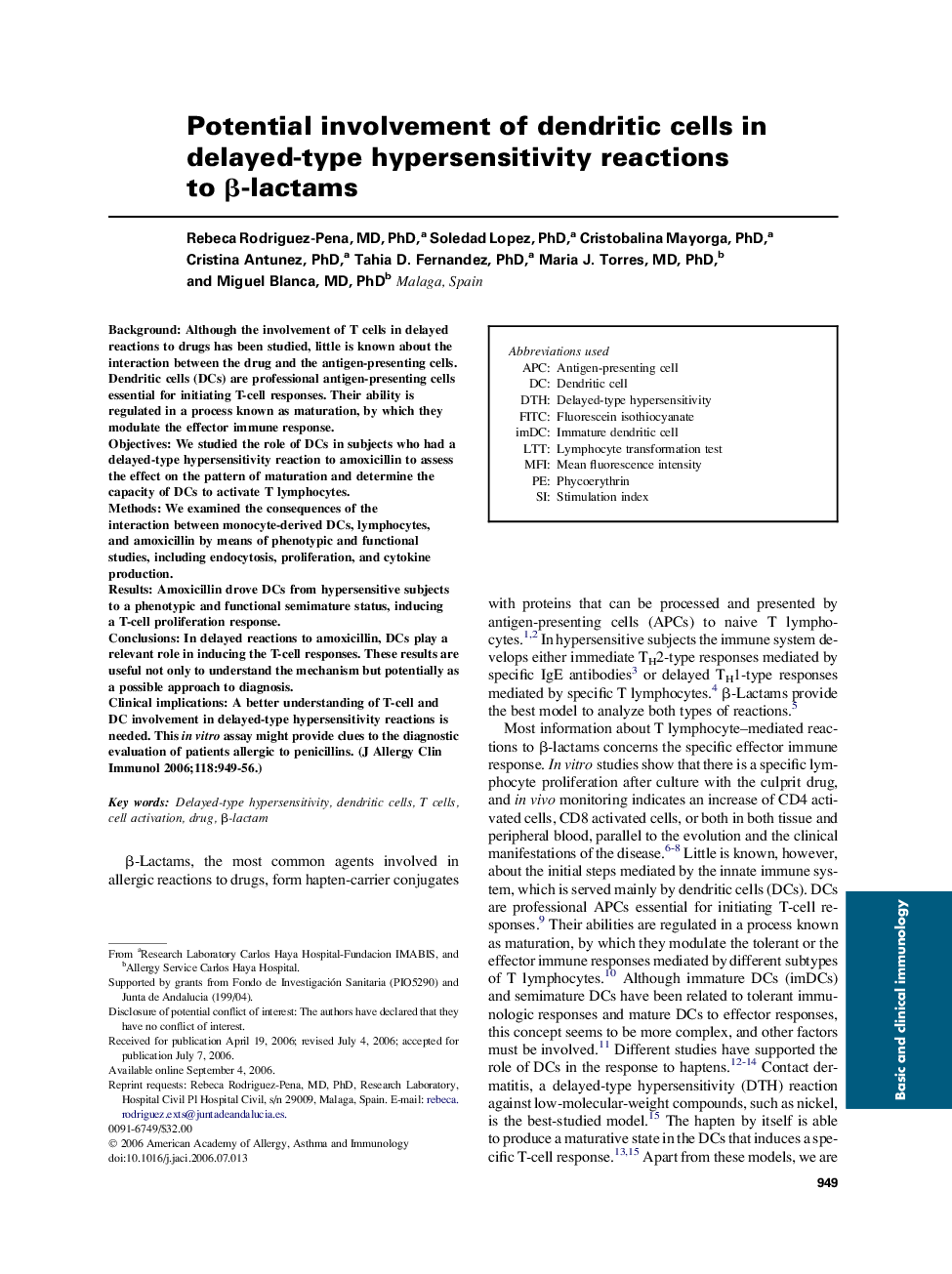| Article ID | Journal | Published Year | Pages | File Type |
|---|---|---|---|---|
| 3202617 | Journal of Allergy and Clinical Immunology | 2006 | 8 Pages |
BackgroundAlthough the involvement of T cells in delayed reactions to drugs has been studied, little is known about the interaction between the drug and the antigen-presenting cells. Dendritic cells (DCs) are professional antigen-presenting cells essential for initiating T-cell responses. Their ability is regulated in a process known as maturation, by which they modulate the effector immune response.ObjectivesWe studied the role of DCs in subjects who had a delayed-type hypersensitivity reaction to amoxicillin to assess the effect on the pattern of maturation and determine the capacity of DCs to activate T lymphocytes.MethodsWe examined the consequences of the interaction between monocyte-derived DCs, lymphocytes, and amoxicillin by means of phenotypic and functional studies, including endocytosis, proliferation, and cytokine production.ResultsAmoxicillin drove DCs from hypersensitive subjects to a phenotypic and functional semimature status, inducing a T-cell proliferation response.ConclusionsIn delayed reactions to amoxicillin, DCs play a relevant role in inducing the T-cell responses. These results are useful not only to understand the mechanism but potentially as a possible approach to diagnosis.Clinical implicationsA better understanding of T-cell and DC involvement in delayed-type hypersensitivity reactions is needed. This in vitro assay might provide clues to the diagnostic evaluation of patients allergic to penicillins.
